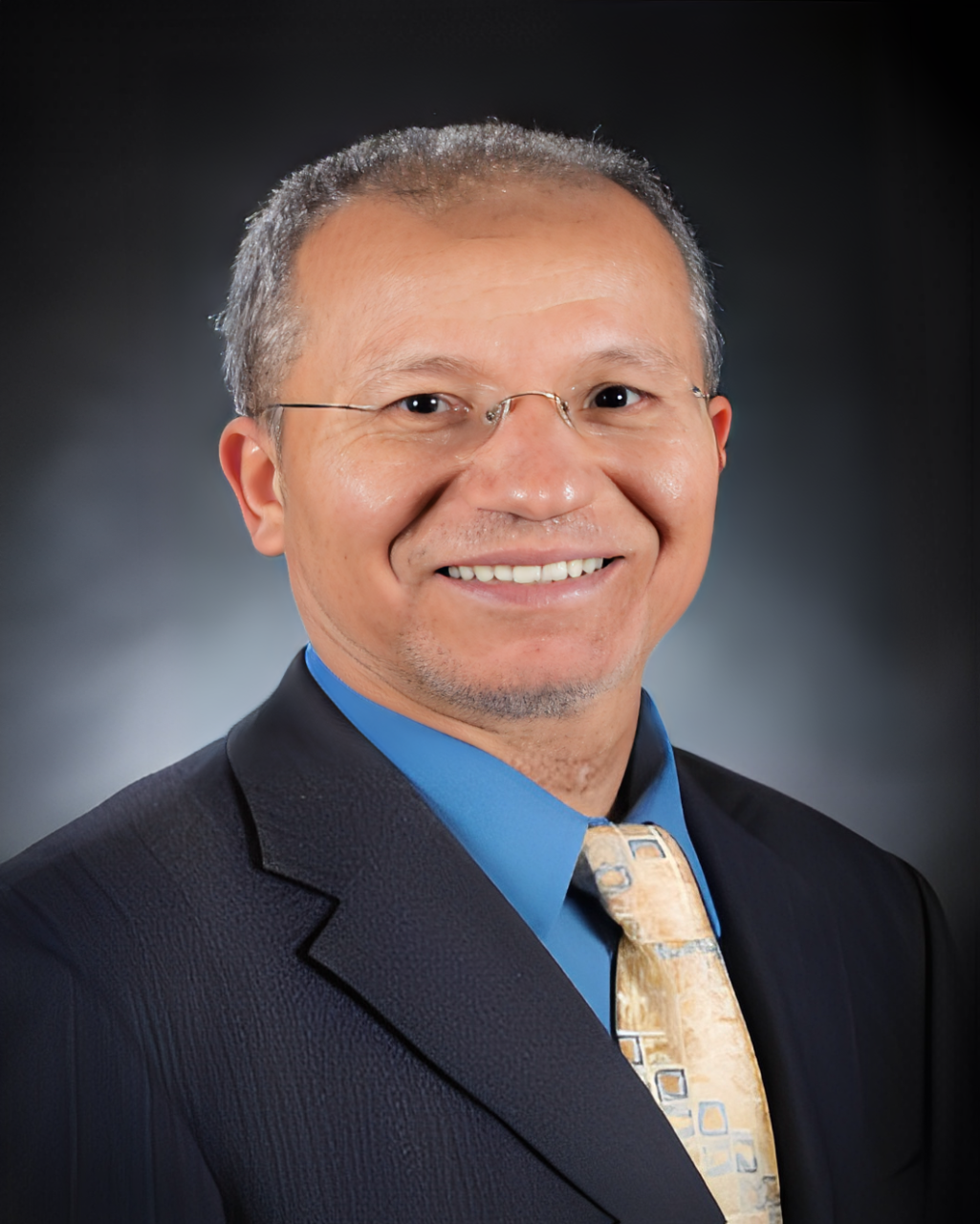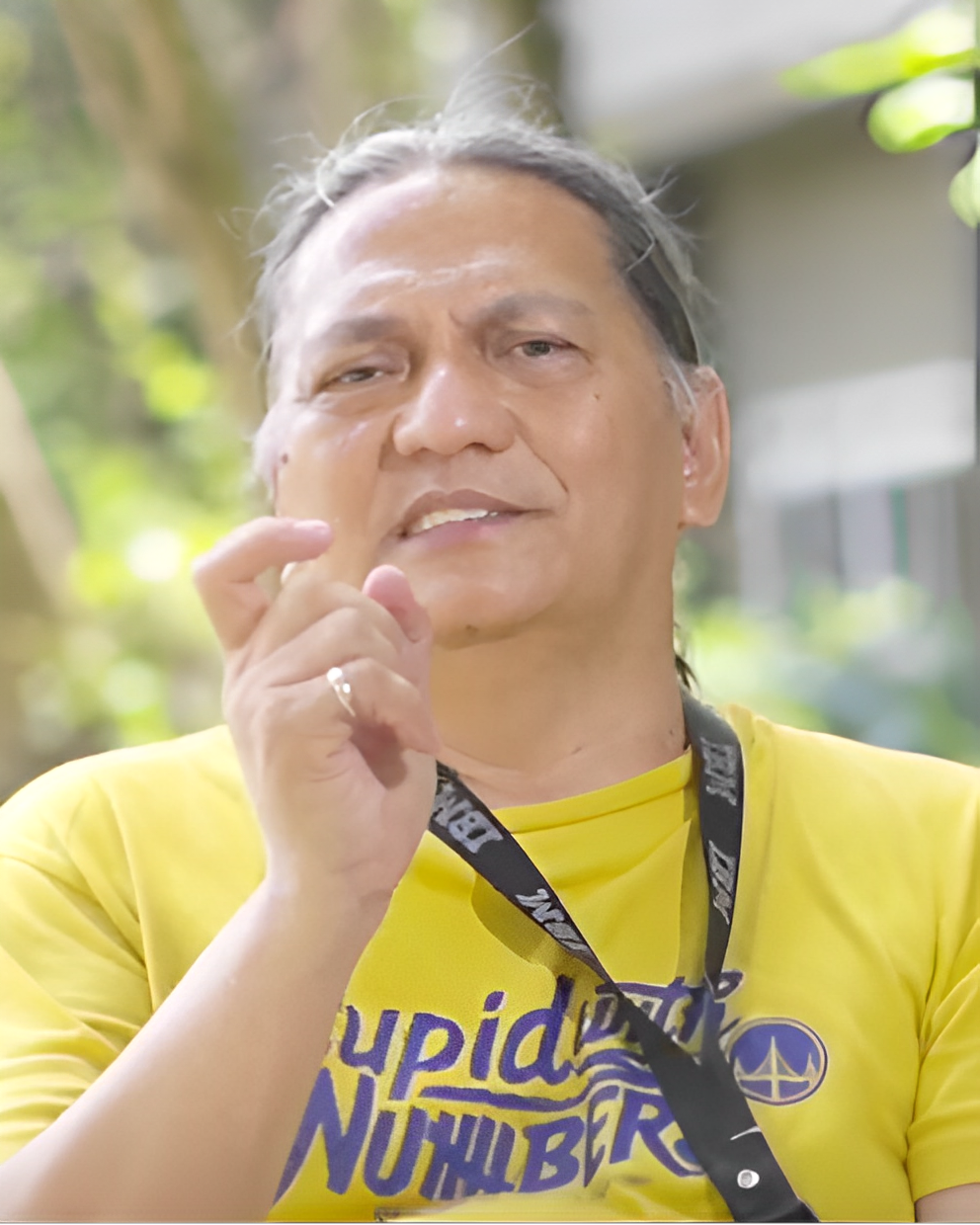
Speakers
Prof. Giancarlo Fortino IEEE Fellow, Highly Cited Researcher in Computer Science by Clarivate University of Calabria, Italy |
Biography: Giancarlo Fortino (IEEE Fellow 2022) is Full Professor of Computer Engineering at the Dept of Informatics, Modeling, Electronics, and Systems of the University of Calabria (Unical), Italy. He received a PhD in Computer Engineering from Unical in 2000. He is also distinguished professor at Wuhan University of Technology (China), high-end expert at Huazhong University of Science and Technology (China), senior research fellow at the Italian ICAR-CNR Institute, CAS PIFI Group international fellow at SIAT (Shenzhen), and Distinguished Lecturer for IEEE Sensors Council, SMC society, and IoT TC. He was also visiting researcher at ICSI, Berkeley (USA), in 1997 and 1999 and visiting professor at Queensland University of technology in 2009. At Unical, he is the Rector's delegate to Int’l relations, the chair of the PhD School in ICT, the director of the Postgraduate Master course in AI-driven Radiomics, and the director of the SPEME lab as well as co-chair of Joint labs on IoT established between Unical and WUT, SMU and HZAU Chinese universities, respectively. Fortino is currently the scientific responsible of the Digital Health group of the Italian CINI National Laboratory at Unical. He is Highly Cited Researcher 2020-2024 in Computer Science by Clarivate (the only Italian professor ranked). He had 25+ highly cited papers in WoS, and h-index=86 with 30000+ citations in Google Scholar. His research interests include wearable computing systems, e-Health, Internet of Things, and agent-based computing. He is author of 750+ papers in int'l journals, conferences and books. He is (founding) series editor of IEEE Press Book Series on Human-Machine Systems and EiC of Springer Internet of Things series and AE of premier int'l journals such as IEEE TASE (senior editor), IEEE TAFFC-CS, IEEE THMS, IEEE T-AI, IEEE SJ, IEEE JBHI, IEEE OJEMB, IEEE OJCS, Information Fusion, EAAI, etc. He chaired many int'l workshops and conferences (130+), was involved in a huge number of int'l conferences/workshops (700+) as IPC member, is/was guest-editor of many special issues (80+). He is cofounder and CEO of SenSysCal S.r.l., a Unical spinoff focused on innovative IoT systems, and recently cofounder and vice-CEO of the spin-off Bigtech S.r.l, focused on big data, AI and IoT technologies. Fortino is currently AVP of the Cybernetics area of the IEEE SMCS and former member of the IEEE SMCS BoG and former chair of the IEEE SMCS Italian Chapter. Title: From Digital Twins to Generative Digital Twins: Towards a Novel Approach in the IoT Edge-Cloud Continuum Abstract: Digital Twins (DTs) are software replicas that not only mirrors physical entities but can also proactively predict, control, optimize and simulate their behavior. Born in the manufacturing sector, this concept after an initial hype stayed untouched for decades. The rise of Internet of Things (IoT) and Artificial Intelligence (AI) enabled DT, respectively, to exchange real-world data and to fully exploit it for fulfilling its own goals. Very recently, Gener-ative AI (Gen-AI) methods started being sporadically applied to DT in different contexts and with different targets. In this talk, starting from our experiences on design, implementation and evaluation of DTs and, more recently, of Opportunistic DTs, we first provide a definition for the Generative DT (GDT) which embraces main distinctive aspects and potential of current and future Gen-Al-aided DTs. In particular, we disclose the role of Gen-AI in conciliating the model- and the data-driven approach for the development of DTs. Then, we analyze the added value of main Gen-AI architectures for maximizing the performance of DTs operating in the IoT domain and deployed in the edge-cloud continuum. Finally, we illustrate the potential of a GDT in emblematic Smart City scenarios through a use case involving the prediction of vehicles' trajectories when, due to uncontrolled events, only partial information is accessible. The outlined solution conciliates accuracy and explainability in the trajectory prediction with overall system robustness and effectiveness. |
 |
Prof. Mario de Jesús Pérez-Jiménez Numerary member of Academia Europaea Universidad de Sevilla, Spain |
Biography: Mario J. Perez Jimenez, Full Professor at the Department of Computer Science and Artificial Intelligence at Universidad de Sevilla, Spain, since 2009, and currently Emeritus Professor. From 2005 to 2007 he was a Guest Professor of the Huazhong University of Science and Technology, Wuhan, China. He is a numerary member of the Academia Europaea (The Academy of Europe) in the Section of Informatics. His main research interests include theory of computation, computational complexity theory, natural computing (DNA computing and membrane computing), bioinformatics and computational modelling for complex systems. He has published 19 books in computer science and mathematics, and over 300 scientific papers in international journals (collaborating with researchers worldwide) and he is a member of the Editorial Board of six ISI journals. He has been the first scientist awarded with “Important Contributions to Membrane Computing” under the auspices of the European Molecular Computing Consortium, Edinburgh, 2008. In 2014, he received the University of Sevilla’s FAMA award for his outstanding research career. He has been the main researcher in various European, Asian, Spanish and Andalusian research grants. From 2003 he is an expert reviewer of the Prospective and Evaluation National Agency of Spain. From May 2006 he is an European Science Foundation peer reviewer, from July 2008 he is an expert reviewer from the Romanian National University Research Council and from October 2015 he is an international expert from the Russian Science Foundation, invited by the Russian International Affairs Council. |
 |
Prof. Mohsen Guizani IEEE Fellow Mohamed Bin Zayed University of Artificial Intelligence, UAE |
Biography: Mohsen Guizani (IEEE Fellow) received the BS (with distinction), MS and PhD degrees in Electrical and Computer engineering from Syracuse University, Syracuse, NY, USA. He is currently a Professor of Machine Learning at the Mohamed Bin Zayed University of Artificial Intelligence (MBZUAI), Abu Dhabi, UAE. Previously, he worked in different institutions in the USA. His research interests include applied machine learning and artificial intelligence, smart city, Internet of Things (IoT), intelligent autonomous systems, and cybersecurity. He became an IEEE Fellow in 2009 and was listed as a Clarivate Analytics Highly Cited Researcher in Computer Science, 2019 to 2022. Dr. Guizani has won several research awards including the "2015 IEEE Communications Society Best Survey Paper Award" , the Best ComSoc Journal Paper Award in 2021 as well 5 Best Paper Awards from ICC and Globecom Conferences. He is the author of 11 books, more than 1000 publications and several US patents. He is also the recipient of the 2017 IEEE Communications Society Wireless Technical Committee (WTC) Recognition Award, the 2018 AdHoc Technical Committee Recognition Award, and the 2019 IEEE Communications and Information Security Technical Recognition (CISTC) Award. He served as the Editor-in-Chief of IEEE Network and is currently serving on the Editorial Boards of many IEEE Transactions and Magazines. He was the Chair of the IEEE Communications Society Wireless Technical Committee and the Chair of the TAOS Technical Committee. He served as the IEEE Computer Society Distinguished Speaker and is currently the IEEE ComSoc Distinguished Lecturer. Title: Large Language Models for Wireless Systems Security Abstract: To meet the diverse requirements for Large Language Models (LLMs) for Wireless Systems Security, we use different AI/ML algorithms to ensure security, privacy, and continuous service under robust IoT systems. IoT devices are used for edge computing technologies, security related technologies and machine learning, to enable LLMs to be envisioned. So, using LLMs in healthcare and autonomous driving as platforms in many of these applications to provide secure and robust systems, reach remote areas and be handy in saving lives during natural challenges. These secure smart services/applications rely on efficient computation and communication resources. In this talk, we showcase our research activities that will contribute to these efforts and advocate possible solutions using LLMs integrated with secure platforms. |
 |
Prof. Min Chen IEEE Fellow, IET Fellow South China University of Technology, China |
Biography: Min Chen (Fellow, IEEE) has been a full professor with the School of Computer Science and Engineering, South China University of Technology. He was the director of Embedded and Pervasive Computing (EPIC) Lab, Huazhong University of Science and Technology. He is the founding chair of IEEE Computer Society Special Technical Communities on Big Data. He was an assistant professor with the School of Computer Science and Engineering, Seoul National University before he joined HUST He is the chair of IEEE Globecom 2022 eHealth Symposium His Google Scholar Citations reached 51,200+ with an h-index of 101 His top paper was cited 5,400+ times. He was selected as highly cited researcher from 2018 to 2024. He got IEEE Communications Society Fred W. Ellersick Prize in 2017, the IEEE Jack Neubauer Memorial Award in 2019, and IEEE ComSoc APB Outstanding Paper Award in 2022. He is a fellow of the IET. |
 |
Prof. György Vaszil Head of the Department of Computer Science at the Faculty of Informatics of the University of Debrecen, Hungary |
Biography: György Vaszil obtained his PhD in 2001 at the Eötvös Loránd University of Budapest. Since 2015, he is full professor at the Faculty of Informatics of the University of Debrecen where he is the head of the Department of Computer Science. His research interests include the theory of formal languages and automata, unconventional or nature motivated computational models, such as bio-inspired models like membrane systems. He has published more than 150 papers in international journals, conferences, and workshops. Title: Manipulating rules as data in membrane computing: Recent results on polymorphic P systems |
 |
Prof. Henry N. Adorna University of the Philippines Diliman, Philippines |
Biography: Henry N. Adorna is a full professor of (Theoretical) Computer Science and a Scientist at the University of the Philippines, Diliman (UPD). He holds the Semirara Mining Corporation Professorial Chair for Computer Science since 2012. HNA established the Algorithms and Complexity Research Laboratory at the Department of Computer Science in 2007 and started the Membrane computing studies in the PH. He is active in the Membrane computing community. Since 2023, HNA heads the Logic and Computability Laboratory of the UPD, Department of Computer Science. HNA works primarily on P systems and his other research interests include algorithmics for NP-hard problems, natural and unconventional computing models (membrane and quantum computing), and formal verification. His publications can be viewed fromGoogle Scholars,DBLP,SCOPUS andORCID. Title: Computations on Spiking Neural P Systems with Matrices Abstract: In 2010, the matrix representation of one of the variants of SN P systems, that is an SN P system without delay was introduced. Several papers using the 2010 results of the proponent were produced, especially in efficiently simulating in silico variants of SN P systems. In this talk, we look back at some of the results on computation of SN P systems as represented by matrices and look forward to some possibilities for future directions. |
 |
Prof. Savas Konur University of Bradford, UK |
| Biography: Savas Konur is the Head of School of Computer Science, Artificial Intelligence and Electronics. He is Professor of Artificial Intelligence and Computational Modelling at the Faculty of Engineering and Digital Technologies, University of Bradford, where he was previously Lecturer, Senior Lecturer and Reader. He received the B.Sc., M.Sc. and Ph.D. degrees in Computer Science from METU (Turkey), RWTH Aachen (Germany) and University of Manchester (UK), respectively. He previously held positions in the Department of Computer Science at University of Sheffield and at University of Liverpool. Prof Konur is the Head of Computational Modelling Research Group. His research interests involve scientific AI; integrated modelling using data-driven, computational, and mathematical modelling paradigms; machine learning-enhanced simulation and verification; intelligent automation and decision-support for complex systems with interdisciplinary applications to systems and synthetic biology, membrane computing, and smart manufacturing. He has successfully secured a portfolio of R&I grants worth of £1.5M as PI and £1.3M as Co-I, funded by EPSRC, Innovate UK, EU RDF and commercial organisations. He has established networks and collaborations with industry and academic institutions both nationally and internationally, which have led to interdisciplinary projects, bids and publications. He has published in numerous prestigious flagship journals as well as many leading conferences. He is in the Editorial Board of Journal of Membrane Computing — Springer Verlag, a flagship journal in membrane computing, a Committee Member of the International Membrane Computing Society, a Member of Verification and Validation of Autonomous Systems UK Network and a Member of Make UK. He has served as referee in numerous prestigious journals and conferences and regularly review for the Engineering and Physical Sciences Research Council (EPSRC), the National Institute for Health and Care Research (NIHR) and Leverhulme Trust. His research has been recognised with multiple awards. He is a currently a Member of both the University’s and FoEI's Research & Innovation Committees. Title: IBW Workbench Web Tool: Modelling and Computational Analysis of Synthetic Biology Systems Using P Systems Abstract: The Infobiotics Workbench (IBW) is an integrated software suite developed for computational systems biology. IBW is built upon stochastic P systems—a probabilistic extension of P systems—as its core modelling framework. The platform facilitates computer-aided modelling and analysis of biological systems through simulation, verification, and optimisation. The IBW web tool introduces a new toolbench based on web architecture and GPGPU high-performance computing, enabling rapid execution of simulations and verification tasks using parallel algorithms. The tool supports import and export of common exchange formats such as SBML and SBOL, ensuring interoperability with standard tools and models. IBW enables modelling and analysis not only at the cellular level but also of multi-compartmental population dynamics. This allows users to compare macroscopic and mesoscopic interpretations of molecular interaction networks and to explore temporo-spatial phenomena in multicellular systems. These capabilities make IBW a coherent, powerful, and comprehensive in silico tool for systems biology research. |
 |
Prof. Jie Xue Shandong Normal University, China |
Biography: Jie Xue , Professor and Ph.D. Supervisor of Shandong Normal University, Taishan Scholar of Shandong Province, Dongyue Scholar, Director of Shandong Future Industrial Laboratory of Brain-like Intelligence, Deputy Director of Shandong Provincial Key Laboratory of Medical Physics and Image Processing Technology. Research Focus: Intelligent image processing for clinical precision diagnosis and treatment of tumors. She has published over 40 SCI-indexed papers as first or corresponding author, including more than 20 in Q1/TOP journals. She has led four national-level projects, including the National Key Research and Development Program of China and General Program grant from the National Natural Science Foundation of China. She also directed four provincial/ministerial-level projects, including Shandong Major Innovation Projects. Her team was awarded the Shandong Higher Education Youth Innovation Team and the "Excellence in Five-Dimensional Graduate Supervision" mentorship team. Title: Advances of P systems based Medical Image Analysis Abstract: With the rapid development of medical imaging technology, the early detection and precise diagnosis of malignant tumors have become crucial for improving treatment efficacy and patient survival rates. Efficiently and accurately extracting tumor features from medical images for intelligent diagnosis has emerged as a key research focus in clinical medicine. However, manual analysis is time-consuming and highly subjective, while existing deep learning techniques often face performance bottlenecks when dealing with the heterogeneity and complexity of tumor characteristics. By integrating various neurobiological mechanisms, we propose a series of P systems and apply them to the automated detection, segmentation, and prognostic analysis of malignant tumors. By defining novel neurons/membranes to describe high-order relationships among multi-modal images, the new P systems could better captures complex structures and multidimensional features in malignant tumor images, thereby assisting in the development of personalized clinical treatment plans. |
 |
Assoc. Prof. José M. Sempere Universidad Politecnica de Valencia, Spain |
Biography: Dr. José M. Sempere is an Associate Professor in the Department of Information Systems and Computation at the Polytechnic University of Valencia (UPV). He is the Scientific Director of the Valencian Research Institute for Artificial Intelligence (VRAIN) at the UPV, and a member of the Joint Research Unit of the Valencian Graduate School and Research Network of Artificial Intelligence (valgrAI). He serves as a member of the Steering Committee for the International Conference on Membrane Computing since 2020, and he is also a member of the Bulletin Committee of The International Membrane Computing Society (IMCS). In 2021, he was awarded by the IMCS Application of the year for LOIMOS, a COVID-19 simulator based on membrane computing. His research interests include membrane and natural computing, computational biology, machine learning and theoretical computer science. Title: Computing by plasmids Abstract: Computing by plasmids is a variant of transition P systems where plasmids act as mobile programs that can move and communicate throughout the system. In this talk, we will provide the foundations for this new approach to computing in the framework of P systems, we will establish the universality of the system, we will introduce some descriptive complexity measures, and we will relate this model to others such as that of P colonies. |
 |
Assoc. Prof. Claudio Zandron Fellow - International Membrane Computing Society (IMCS) University of Milano-Bicocca, Italy |
Biography: Claudio Zandron got the Ph.D., in computer science from the University of Milan in 2002. Since 2006 he is an associate professor at the Department of Informatics, Systems and Communication of the University of Milano-Bicocca, Italy. His research interests concern the areas of formal languages, molecular computing models, DNA computing, membrane computing, and computational complexity. Title: Recent Advancements and Future Research Challenges in Spiking Neural P Systems Abstract: The talk will present recent advancements in Spiking Neural P Systems (SNPS), focusing on the latest developments in their theoretical framework and applications. Some promising future research directions will be presented, identifying key challenges, emerging trends, and potential breakthroughs in the field. |








